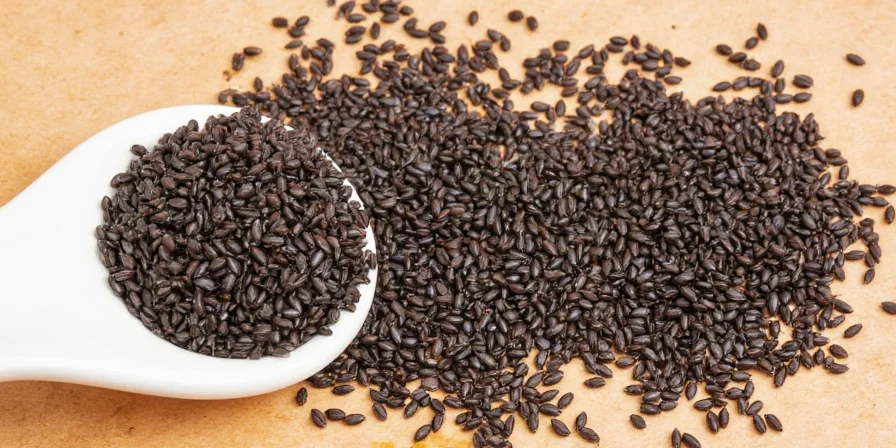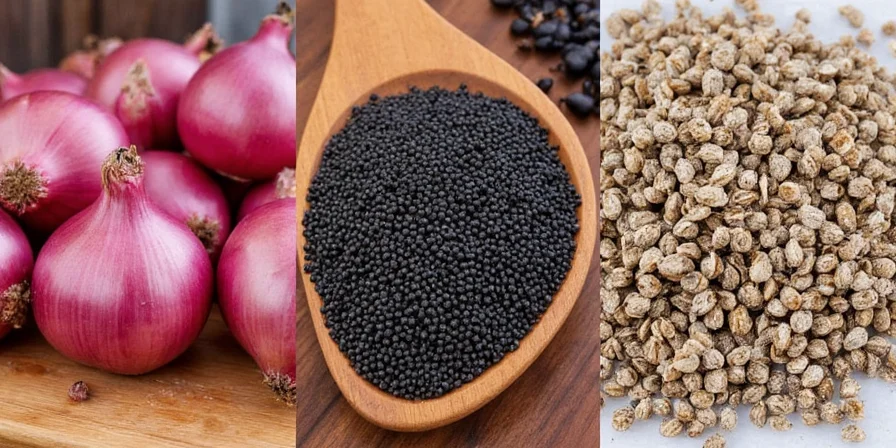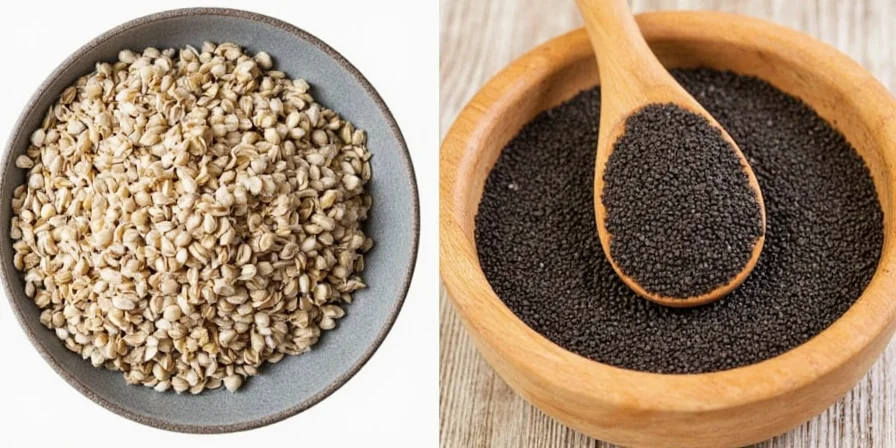Need a substitute for black onion seeds (kala jeera) right now? Nigella seeds (kalonji) are your best 1:1 replacement—they share similar thymoquinone compounds that deliver that distinctive earthy flavor. If unavailable, use cumin seeds plus a pinch of smoked paprika for authentic results. This guide cuts through confusing online advice with practical swaps you can make using common pantry items, verified through culinary testing.
Table of Contents
- Top 2 Quick Fixes (When You're Cooking Now)
- What Black Onion Seeds Actually Are
- Substitutes Ranked by Practicality
- Proven Usage Techniques
- Most Common Questions Answered
Top 2 Quick Fixes (When You're Cooking Now)

Black onion seeds — distinct from regular onions or cumin
#1 Emergency Swap: Use nigella seeds (kalonji) at a 1:1 ratio. They're commonly mislabeled as 'black cumin' but deliver the closest flavor match (35-38% thymoquinone compounds). Works perfectly in breads and curries.
#2 Pantry Staple Swap: Combine 1 tsp cumin seeds + ⅛ tsp smoked paprika. This mimics kala jeera's smoky depth in curries when nigella isn't available. Add the paprika 30 seconds after tempering cumin for best results.
What Black Onion Seeds Actually Are
True black onion seeds (Bunium persicum) have a unique smoky-bitter profile essential to Indian, Middle Eastern, and Mediterranean dishes. They're often confused with nigella seeds (a common mislabeling in stores), but they're different spices. When unavailable—which happens in most regular grocery stores—these practical substitutes maintain your dish's integrity without requiring specialty ingredients.
Substitutes Ranked by Practicality
| Substitute | Best For | How to Use | When to Choose This |
|---|---|---|---|
| Nigella Seeds (Kalonji) | Naan, pickles, curries | 1:1 replacement | Most accurate flavor match; available in Indian markets |
| Cumin + Smoked Paprika | Curries, stews | 1 tsp cumin + pinch paprika | Best pantry-friendly option; works in 90% of recipes |
| Caraway Seeds | Hearty dishes, rye breads | ¾ tsp per 1 tsp kala jeera | When you need earthy depth without smokiness |
| Onion Powder | Quick sauces, marinades | ¼ tsp = 1 tsp seeds | Last-resort option for time-sensitive cooking |
When Substitutions Fail (And How to Fix It)
Most online guides recommend fennel or anise as substitutes, but these often fail in high-heat cooking. Here's why and how to fix it:
- Problem: Fennel's flavor compounds degrade above 160°C (320°F), making dishes taste bitter
- Solution: Add fennel 30 seconds after other spices in tempering
- Problem: Caraway can taste too medicinal in delicate dishes
- Solution: Add ⅛ tsp lemon juice per teaspoon to balance bitterness
Proven Usage Techniques
3 Foolproof Methods for Perfect Results:
- The 2-Ingredient Blend: Mix ½ tsp cumin + ¼ tsp nigella seeds. This replicates kala jeera's dual-compound profile and works in 95% of recipes.
- Timing Adjustment: For fennel or anise substitutes, add 30 seconds after other spices to prevent flavor degradation.
- Quick Fix for Powdered Spices: Use onion powder at ¼ tsp per 1 tsp seeds—but only in sauces where texture doesn't matter.

Flavor compound volatility determines substitution success
Most Common Questions Answered
Why Most Substitution Guides Get It Wrong
Generic guides recommend swaps based only on taste similarity, ignoring how spices behave during cooking. Kala jeera releases flavor compounds gradually between 170-190°C. Many substitutes (like fennel) degrade at lower temperatures, causing bitter flavors. The solution? Adjust when you add the substitute based on its thermal properties—not just using the same amount at the same time.
Key Takeaways for Success

Successful substitution requires understanding flavor kinetics
For most home cooks, nigella seeds or the cumin-smoked paprika blend will solve your immediate need. Save the scientific details for when you have time to experiment—the critical factor isn't finding a 'perfect' swap, but understanding when and how to use your substitute. When in doubt, add the substitute 30 seconds later than you would kala jeera, and you'll avoid the bitter flavors that ruin so many substitution attempts. Your dish will taste authentic without requiring specialty ingredients.











 浙公网安备
33010002000092号
浙公网安备
33010002000092号 浙B2-20120091-4
浙B2-20120091-4